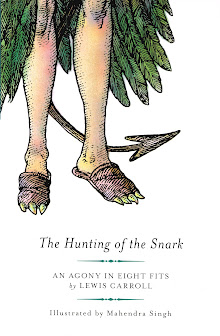Page 42 of any work of literature will always be redolent of the highest
Carrollian vibes imaginable; to wit, the well-known mojo of the
Puissant Number 42 is at this very moment shedding its potent tantric
vibe over the above drawing, a drawing dedicated to the ubiquitious
situation of everybody speaking at once so that nobody knows what’s
being said.
The late, great Strother Martin (probably one of the
Heiddeger Martins from Heidelberg, back in the old country) once noted,
in a similar situation involving some other dunderheads messing about
with the law, phenomenology and life’s problems in general, that what we
have here is a failure to communicate. But how to illustrate such a
situation without in turn failing to communicate one’s own self? How can
we avoid the relentless, downward spiral of miscommunication, and
distrust which so plagues modern youth?
Such logical intricacies
were a sort of busman’s holiday for a certain class of Hindu (and
Buddhist) philosophers and sages of yore whose otherwise innocuous
turbans concealed brains possessed with a fiendish capacity for
splitting hairs. The very antithesis of the plain-talking Strother
Martin, these learned gentlemen delighted in concocting the metaphysical
equivalent of the blazing hot curries on which they subsisted;
arguments possessed of such piquancy that they were often disguised as
bland, easy-to-swallow parables lest they frighten the kiddies or scare
the livestock, so to speak.
The most famous of such parables
describes the misguided attempt by a group of blind brahmins to describe
what an elephant is like through touch alone. One brahmin, grasping the
trunk, thinks the elephant is rope-like, the other hugs a leg and finds
the elephant to be tree-like, and so on until you, the befuddled reader
trapped in your occidental web of illusion, get the point and purchase
another round of curry for the house.
Needless to say, this illusion business (better known as maya
in the finer sort of new — and old — deli) is further compounded by
this artist with the addition of a really top-knotch epistomelogical
corker: the multivalent confusion generated by having everyone concerned
being the same person.
In such a case, when observer and
observed are one and the same, one can truly say that anything anyone
might have to say about anything will be best classified as everyone
speaking at once and hence no one knowing what is said (pauses to wipe forehead with a dampened dosa). Or as a certain neologizing German thinkwallah might have put it, what we have here is a failure to überselbstzeichnungangstgemachen.
Stay tuned, tolerant reader, for next week’s exciting, hijacked episode of Lewis Carroll’s Hunting of the Snark … or something like that …
Monday, July 25, 2016
Monday, July 4, 2016
Every Fourth Deserves a Fifth
Too pooped for the usual Snark GN blather today, so I thought it better-than-best to celebrate America's birthday, the Fourth of July, with this drawing … from left to right, George Mason, Voltaire, David Hume and Georg Lichtenberg. The ladies are anonymous patriots …
"… possessed by a sudden pity for his ingenuous though well-meaning friend, Wadsworth clasped Candide’s shoulders.
“Don’t worry, man. I played Caliban in too many blaxploitation versions of The Tempest to bother anymore with reading between the squirrelly lines of every rich honky pervert who gets his rocks off by not getting his rocks off.” — American Candide
Make this Fourth special for your family and friends with American Candide, the novel as nasty as they wanna be.
"… possessed by a sudden pity for his ingenuous though well-meaning friend, Wadsworth clasped Candide’s shoulders.
“Don’t worry, man. I played Caliban in too many blaxploitation versions of The Tempest to bother anymore with reading between the squirrelly lines of every rich honky pervert who gets his rocks off by not getting his rocks off.” — American Candide
Make this Fourth special for your family and friends with American Candide, the novel as nasty as they wanna be.
Subscribe to:
Comments (Atom)









